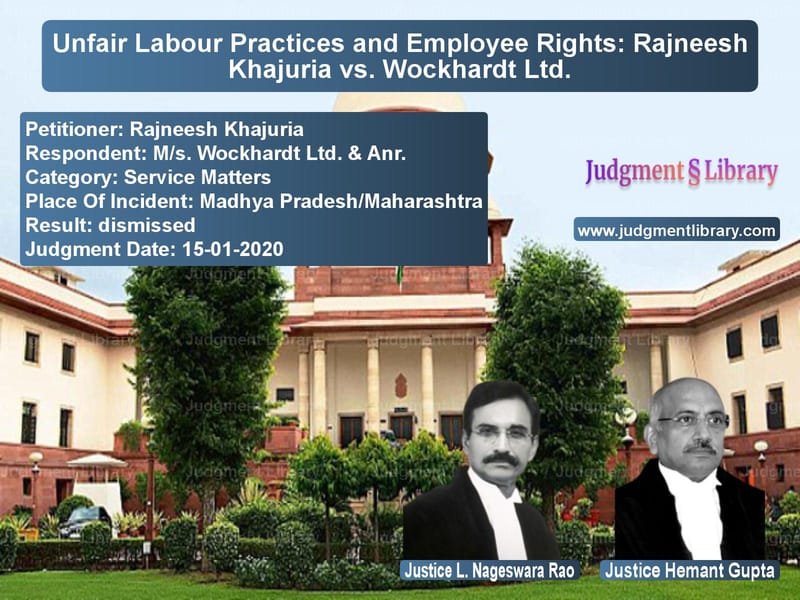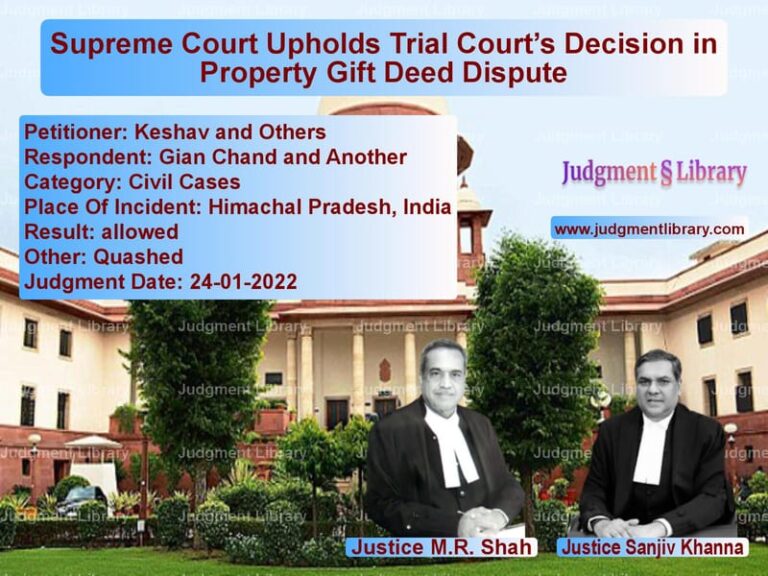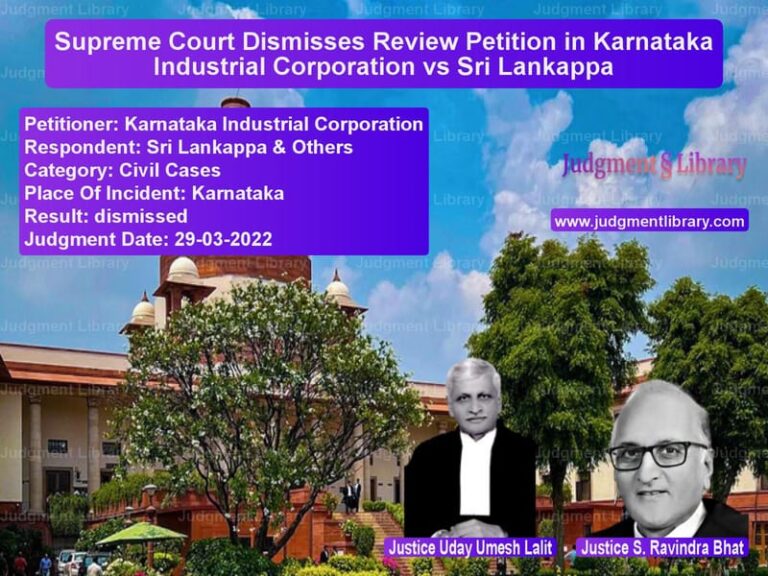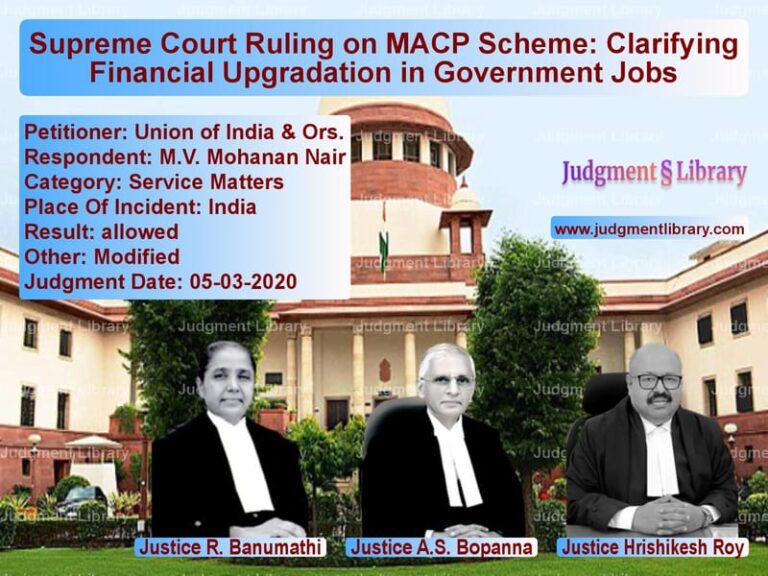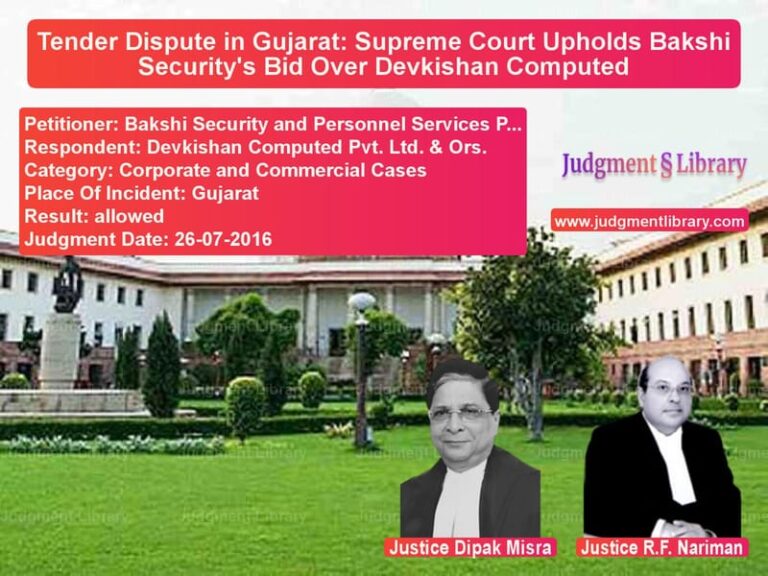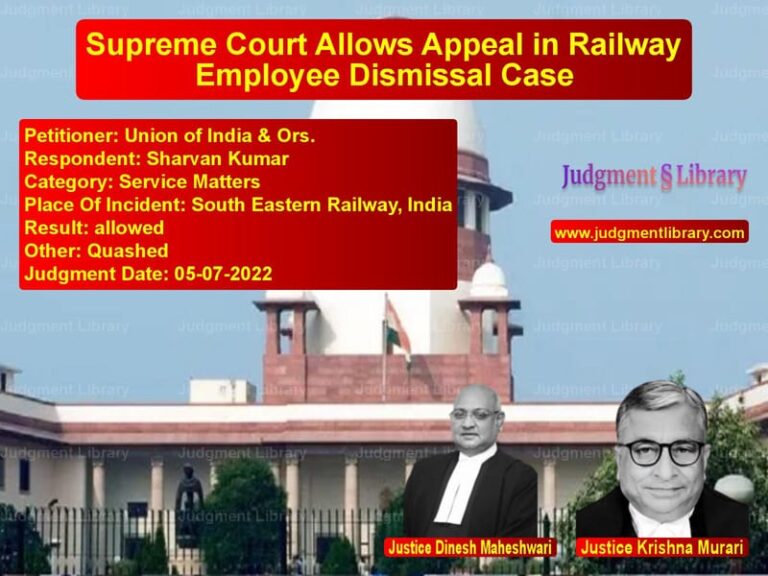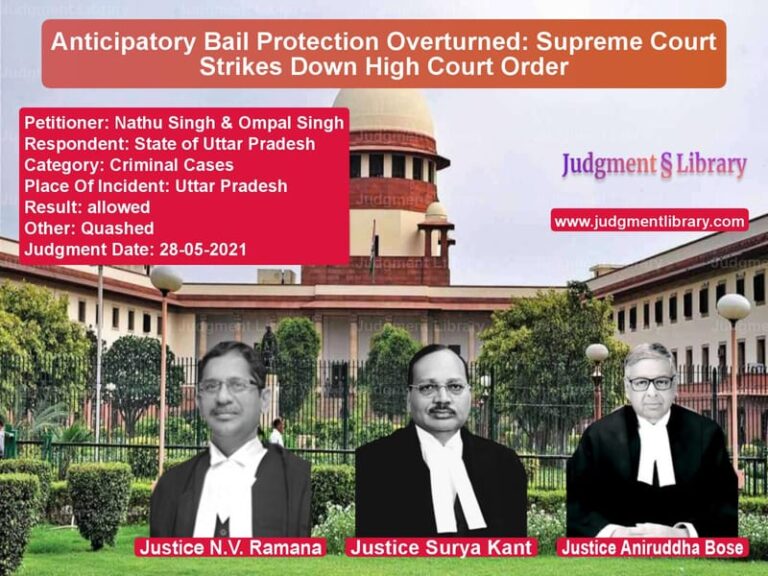Unfair Labour Practices and Employee Rights: Rajneesh Khajuria vs. Wockhardt Ltd.
The case of Rajneesh Khajuria vs. Wockhardt Ltd. addresses significant legal questions regarding unfair labour practices, employee transfers, and wrongful termination under the Maharashtra Recognition of Trade Unions and Prevention of Unfair Labour Practices Act, 1971. The Supreme Court was called upon to decide whether the employee’s transfer and subsequent termination were justified or amounted to unfair labour practices.
Background of the Case
Rajneesh Khajuria was employed as a Professional Service Representative by Wockhardt Ltd. in 1985 and was stationed in Sagar, Madhya Pradesh. Over time, he was promoted to Field Sales Officer, and his appointment letter specified that the company could transfer him at any time.
On March 21, 2005, Wockhardt Ltd. transferred Khajuria to Mumbai with immediate effect. He refused to report at his new location, leading to multiple reminders from the company. Eventually, his services were terminated on April 15, 2005.
Khajuria, along with the National Federation of Sales Representatives’ Union, filed a complaint before the Industrial Court, Maharashtra, alleging that his transfer and termination were motivated by malice and amounted to unfair labour practices. The complaint cited several sections under Schedule IV of the Maharashtra Recognition of Trade Unions and Prevention of Unfair Labour Practices Act, 1971.
Arguments of the Appellant (Rajneesh Khajuria)
Khajuria argued that:
- The transfer was punitive and not based on business exigency or administrative reasons.
- His opposition to unfair labour practices at a company conference led to retaliatory actions against him and his colleagues.
- The termination letter dated April 15, 2005, was fake and not bona fide.
- His role as the President of the Sagar Unit of the Madhya Pradesh Medical Representatives’ Association made him a target for the employer.
- His transfer amounted to unfair labour practices under Schedule IV, Items 3, 7, 9, and 10 of the Act.
Arguments of the Respondents (Wockhardt Ltd.)
Wockhardt Ltd. contended that:
- Khajuria was not a “workman” as defined under the Industrial Disputes Act, 1947, but rather held a managerial role.
- His transfer was a routine administrative decision in accordance with his employment contract.
- His refusal to report to the Mumbai office led to his termination.
- The Industrial Court had no jurisdiction to decide termination-related matters.
- The delay in filing expense statements by the employee made salary payments impossible.
Key Observations of the Supreme Court
The Supreme Court examined the case on four primary issues:
- Whether Khajuria was a workman under the Industrial Disputes Act.
- Whether the termination order was genuine.
- Whether the transfer was an act of unfair labour practice.
- Whether the Industrial Court had jurisdiction to entertain termination disputes.
The Court found:
- The termination order was valid and had been communicated to the appellant.
- There was no evidence of malice or victimization in the transfer order.
- Unfair labour practices could only be claimed if the employer’s action lacked lawful justification.
- The Industrial Court lacked jurisdiction over termination disputes, which fall under the Labour Court.
Verbatim Court Findings
The Supreme Court held:
“The act of transfer can be unfair labour practice if the transfer is actuated by mala fide. The allegations of mala fide have two facets – one malice in law and the other being malice in fact. The challenge to the transfer is based upon malice in fact as it is an action taken by the employer on account of two officers present in the Conference.”
Additionally, the Court emphasized:
“If an employee is transferred after 20 years and that too to the place of headquarters of a company, it cannot be said that the act of transfer was done without lawful excuse. No inference can be drawn that an act was done from ill feeling or spite.”
Final Judgment
The Supreme Court upheld the High Court’s ruling, dismissing the appeal and confirming that:
- The transfer was within the company’s administrative rights.
- The termination order was valid.
- The claim of unfair labour practices was not substantiated.
Final Verdict: Appeal dismissed.
Petitioner Name: Rajneesh Khajuria.Respondent Name: M/s. Wockhardt Ltd. & Anr..Judgment By: Justice L. Nageswara Rao, Justice Hemant Gupta.Place Of Incident: Madhya Pradesh/Maharashtra.Judgment Date: 15-01-2020.
Don’t miss out on the full details! Download the complete judgment in PDF format below and gain valuable insights instantly!
Download Judgment: Rajneesh Khajuria vs Ms. Wockhardt Ltd. Supreme Court of India Judgment Dated 15-01-2020.pdf
Direct Downlaod Judgment: Direct downlaod this Judgment
See all petitions in Employment Disputes
See all petitions in Transfers Cases
See all petitions in Judgment by L. Nageswara Rao
See all petitions in Judgment by Hemant Gupta
See all petitions in dismissed
See all petitions in supreme court of India judgments January 2020
See all petitions in 2020 judgments
See all posts in Service Matters Category
See all allowed petitions in Service Matters Category
See all Dismissed petitions in Service Matters Category
See all partially allowed petitions in Service Matters Category

